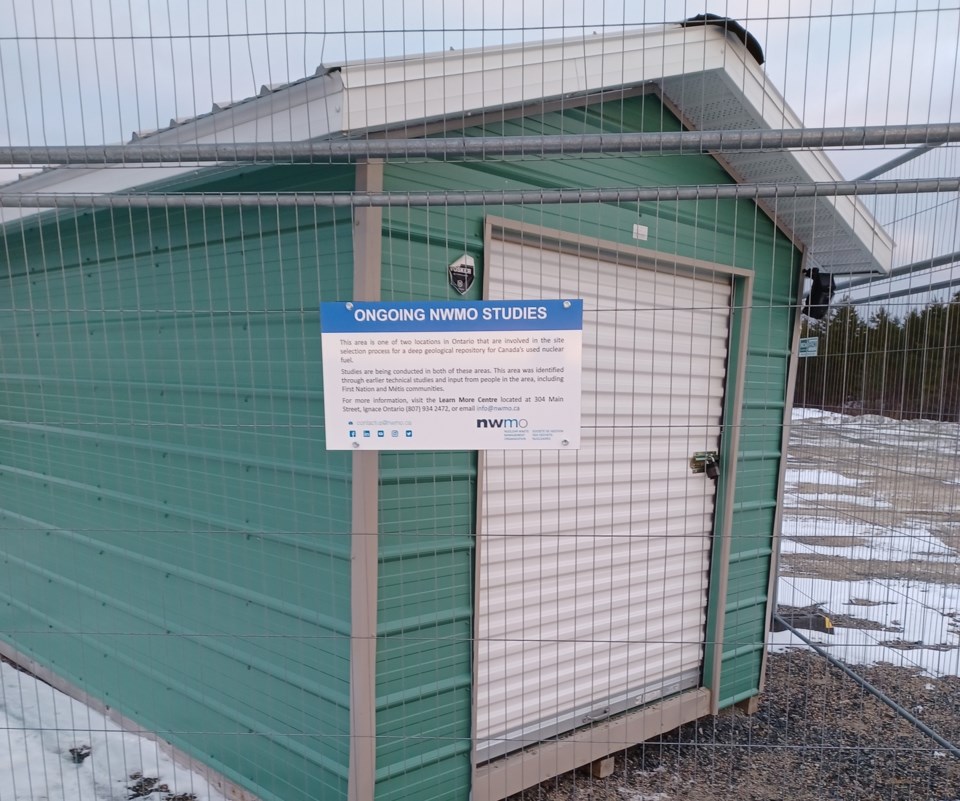EAGLE LAKE – Eagle Lake First Nation is challenging the Nuclear Waste Management Organization’s site selection in court, and that’s more than welcome news to Neecha Dupuis.
“I love it,” Dupuis, a member of the Ojibway Nation of Saugeen (Savant Lake), said from Ottawa. “Just pure love.”
Eagle Lake’s chief “came and walked with us” in this year’s Walk Against Nuclear Waste, she noted.
“It’s all coming together, like one giant dream catcher,” Dupuis said.
Dupuis said she doesn’t understand Wabigoon Lake Ojibway Nation’s decision to move forward with the NWMO on possibly constructing a deep geological repository, or DGR, for high-level nuclear waste.
“For them to choose nuclear waste over the land, that doesn’t make sense. It doesn’t make sense at all.”
An application filed Dec. 20 in Federal Court seeks a judicial review of the NWMO’s site selection for the DGR.
The industry-funded body, mandated by the Nuclear Fuel Waste Act of 2002, announced on Nov. 28 it had chosen the Revell Lake site between Wabigoon Lake and Ignace.
The NWMO refused to consider Eagle Lake a host community for the DGR, “and not for any fair, justifiable or defensible reasons,” last week’s application states.
Rather, according to the document, the organization rejected Eagle Lake because “members had indicated some concerns with the DGR.”
Excluding Eagle Lake from the process was a “procedurally unfair” and “bad faith” manoeuvre, the application asserts.
Eagle Lake’s attorney also says in the application that ignoring the First Nation’s concerns is a violation of the 1982 Constitution Act’s Section 35, which guarantees treaty and Aboriginal rights, and the necessity under the United Nations Declaration on the Rights of Indigenous Peoples to obtain “free, prior and informed consent.”
The Eagle Lake reserve is southeast of Dryden but the First Nation’s traditional “homeland territory” includes the Revell Lake area east of Wabigoon Lake, according to the application.
Eagle Lake, also known as Migisi Sahgaigan, and the present Wabigoon Lake Ojibway Nation were “of one Nation” when Treaty #3 was signed in 1873 and continued as one for decades afterward, the filing states.
For that reason, it says, the two First Nations have overlapping territories.
The court filing, which also names the federal natural resources minister and attorney general as respondents, seeks to have site selection voided and put under judicial review.
In response to Eagle Lake’s legal action, NWMO spokesperson Carolyn Fell told The Canadian Press the nuclear body has “always been open to engaging with any First Nation interested in this project.”
She told Newswatch in an email Friday afternoon that the organization "is aware of and is reviewing the details of the judicial review filed by Eagle Lake First Nation."
The site was chosen "following extensive technical study and community engagement which established that the site is safe and that the willing and informed host communities understand the project and support making it part of their community," Fell said.
"This decision is the start of a multi-year regulatory review and approval process ... designed to ensure the project meets or exceeds strict regulatory criteria to protect the health, safety and security of people and the environment," she said.
The NWMO wants to build a deep-underground structure of chambers and tunnels for the long-term placement of spent fuel from Canada’s nuclear power plants.
Construction is projected to begin around 2033, depending on clearing regulatory and licensing reviews.
